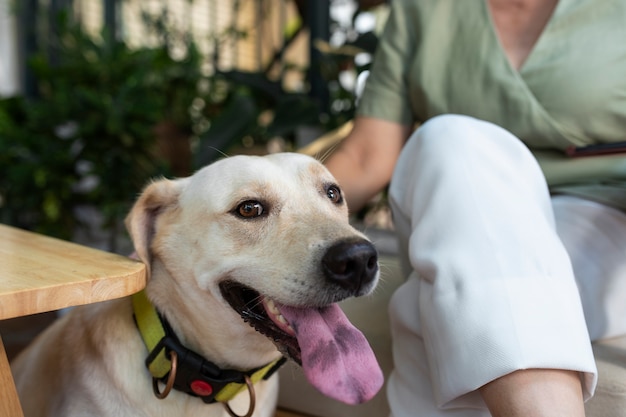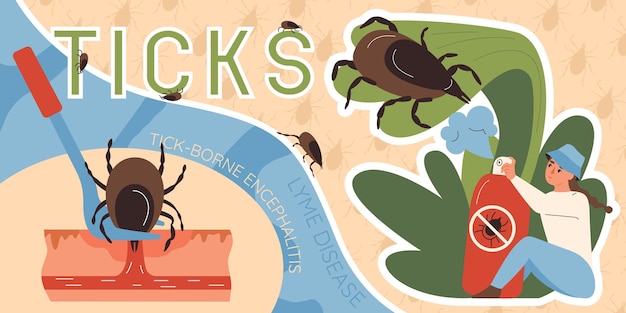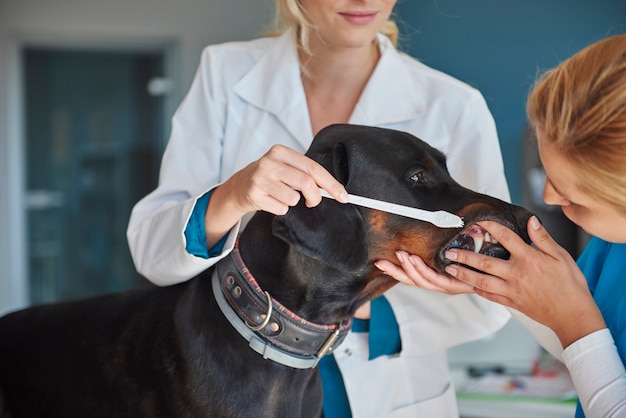Understanding TPLO Surgery for Your Dog’s Knee


Understanding TPLO Surgery for Your Dog’s Knee
When your dog starts limping or suddenly refuses to put weight on a back leg, the worry can be overwhelming. At Pet Lovers Animal Hospital Long Beach, we know how distressing it is to see your pet in pain and struggling to move. If your veterinarian has mentioned that your dog may have a torn ACL, you might be searching for answers about treatment options, what recovery looks like, and how you can help your beloved companion return to their joyful self. TPLO surgery is one of the most advanced solutions for restoring mobility after canine knee injuries, and our veterinary team in Long Beach and surrounding communities is here to guide you through every step of the process.
In this guide, we’ll explain what TPLO surgery involves, how to recognize when your dog might need it, what to expect during the recovery process, and how quality veterinary care in Long Beach can make a difference in your dog’s outcome. Throughout, you’ll find practical advice, a compassionate perspective, and insight into how our experienced veterinarians support both pets and their families through dog knee surgery recovery. If you’re searching for a “vet near me” or considering orthopedic surgery options for your dog, you’re in the right place. To learn more about the specifics of this procedure at our clinic, you can visit our dedicated TPLO Surgery service page.
Recognizing the Signs: When Does Your Dog Need TPLO Surgery?
Understanding when to seek veterinary help for a knee injury is the first step toward your dog’s recovery. Torn ACLs, also called cranial cruciate ligament (CCL) tears, are unfortunately quite common in dogs, especially active or larger breeds. Key symptoms include sudden limping, reluctance to put weight on a hind leg, difficulty rising from a lying position, or an obvious decrease in activity levels. Some dogs may yelp in pain during play or after a jump, while others simply become less eager to go for walks. Swelling around the knee joint, stiffness after rest, or a noticeable change in your dog’s gait are additional signs that warrant concern.
Pet owners in Long Beach and surrounding areas often notice these changes after a vigorous outing at the park or even during routine backyard play. If your dog’s symptoms persist for more than a day or worsen with activity, it’s important to schedule an appointment with your local veterinarian. Early intervention can help reduce pain and prevent further joint damage, ultimately improving the chance of a smooth dog knee surgery recovery.
Why Do Dogs Tear Their ACL? Understanding the Causes
The cranial cruciate ligament in a dog’s knee plays a crucial role in stabilizing the joint during movement. When this ligament is damaged or torn, the knee becomes unstable, leading to pain and loss of mobility. Multiple factors contribute to ACL injuries in dogs; these include sudden twisting movements, slips during play, jumping from heights, or even gradual wear-and-tear over time. Overweight dogs are at greater risk since excess weight places added strain on the joints, while certain breeds such as Labradors, Rottweilers, and German Shepherds have a genetic predisposition to ligament injuries.
Environmental factors unique to Long Beach, like year-round outdoor activity and high-energy play at local dog parks, can increase the risk of knee injuries. Aging also plays a role, as older dogs may have weaker ligaments and reduced muscle mass, making them more susceptible to tears. Understanding these causes empowers pet owners to make informed decisions about their pet’s health and highlights the importance of preventive care from a trusted veterinarian near me.
How TPLO Surgery Works: The Gold Standard in Dog Knee Surgery
TPLO surgery, or Tibial Plateau Leveling Osteotomy, is widely recognized as one of the most effective solutions for dogs with torn ACLs. Unlike traditional repair methods that attempt to replace the damaged ligament, TPLO changes the dynamics of the knee joint to restore stability and allow for normal movement, even without an intact ligament. The procedure involves making a curved cut in the top of the tibia (the shin bone), rotating it to a precise angle, and securing it with a specialized plate and screws. This adjustment alters the forces in the knee, enabling your dog to bear weight comfortably and reducing the risk of future injury.
At Pet Lovers Animal Hospital Long Beach, our veterinary professionals have extensive experience performing TPLO surgery in Long Beach, using advanced surgical equipment and techniques to ensure the best possible outcomes. The entire process begins with a comprehensive orthopedic evaluation, including diagnostic imaging and a tailored anesthetic plan. During the surgery, we maintain strict sterile protocols and monitor your pet’s vital signs at every stage.
After surgery, dog knee surgery recovery involves a carefully managed rehabilitation period. Most dogs start to put weight on the operated leg within days, and improvement continues as the bone heals over the following weeks. Our team provides detailed instructions for at-home care, pain management, and follow-up visits, ensuring your dog receives the support needed for a strong and lasting recovery. For more information about our orthopedic expertise and other surgical services, you can explore our orthopedics services page.
What to Expect: The TPLO Recovery Timeline
Dog knee surgery recovery is a gradual process, but most pet owners are amazed at how quickly their dogs regain mobility. In the first two weeks after TPLO surgery, you’ll notice your dog’s pain subsiding and their willingness to use the leg increasing. Restricted activity is crucial during this period; short, controlled leash walks and plenty of rest help ensure the bone heals properly. Around four to six weeks post-surgery, your veterinarian will evaluate healing progress, possibly with follow-up x-rays. By the eight-to-twelve-week mark, most dogs have regained significant strength and mobility, though some may require longer for complete healing.
Throughout recovery, we recommend close communication with our veterinary team. If you notice any signs of discomfort, swelling, or changes in your dog’s behavior, prompt attention can help prevent complications. Our commitment to quality veterinary services in Long Beach means we’re here to answer your questions and adjust your pet’s care plan as needed.
Supporting Your Dog at Home: Prevention and Home Care Tips
While some ACL injuries are unavoidable, there are steps you can take to reduce your dog’s risk and support a smooth recovery after surgery. Maintaining a healthy weight is one of the most important preventive measures; excess pounds add unnecessary strain to joints and ligaments. Regular, moderate exercise that matches your dog’s age and fitness level keeps muscles strong and joints flexible. Avoid high-impact activities, especially for breeds at higher risk or dogs with a history of joint problems.
During dog knee surgery recovery, providing a calm, comfortable environment is essential. Block off slippery floors, use ramps instead of stairs when possible, and keep your dog’s bedding clean and supportive. Follow all post-surgical instructions from your veterinarian, including any prescribed medications, dietary recommendations, and physical therapy exercises. Patience and consistency are key; your pet will benefit from your encouragement and gentle care throughout the healing process.
For pet owners researching “TPLO surgery near me” or seeking advice on orthopedic health in Long Beach, our team is always happy to provide guidance tailored to your dog’s needs. Preventive check-ups and early intervention can make a significant difference in your pet’s long-term mobility and comfort.
When to Contact Your Veterinarian: Ensuring the Best Outcome
There are clear situations where immediate veterinary attention is necessary for a dog with a suspected knee injury. Red flags include persistent limping that does not improve with rest, significant swelling or heat around the knee joint, vocalizing in pain, or sudden refusal to use the leg altogether. After TPLO surgery, any signs of infection, such as redness, discharge, or foul odor at the incision site, require prompt evaluation.
If you’re unsure whether your dog needs professional care, it’s always better to err on the side of caution and schedule an appointment. Our veterinarians can provide a thorough assessment and recommend the best course of action, whether that means pursuing surgical intervention or exploring alternative treatment options. For urgent or priority situations, our clinic also offers priority veterinary visits to ensure your pet receives timely attention.
Remember, early diagnosis and treatment are key to a successful dog knee surgery recovery and can prevent further damage to the joint. Our team at Pet Lovers Animal Hospital Long Beach is dedicated to helping you navigate every stage of your pet’s care with compassion and expertise.
Your Partner in Dog Knee Surgery Recovery in Long Beach
Watching your dog struggle with a knee injury is never easy, but with expert care and a supportive recovery plan, your companion can return to an active, happy life. At Pet Lovers Animal Hospital Long Beach, our veterinary professionals specialize in TPLO surgery in Long Beach and are committed to providing personalized guidance, advanced surgical techniques, and ongoing support throughout your dog’s healing journey.
If you’re searching for the “best veterinarian near me” or need information about dog knee surgery recovery in Long Beach, we invite you to reach out to our team. Schedule an appointment today by calling (562) 349-0000 or visiting us at 5211 Atlantic Ave, Long Beach, CA 90805. For more details on how we can help restore your dog’s mobility and comfort, explore our TPLO Surgery service page.
Your pet’s health and happiness are our top priorities. Trust our veterinary team to be your partner in every step of your dog’s recovery, providing the highest quality TPLO surgery in Long Beach and the surrounding area. We look forward to helping your pet get back to the life they love.
This article is for informational purposes only and does not replace professional veterinary advice. Always consult with your veterinarian regarding your pet’s specific condition and needs. For more information on TPLO surgery and orthopedic care, reputable resources include the American College of Veterinary Surgeons and American Veterinary Medical Association.


















